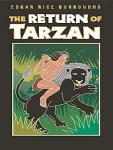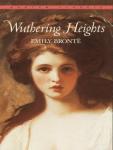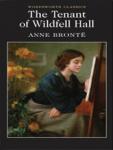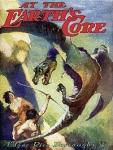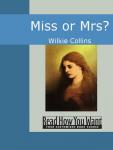An Ideal Husband
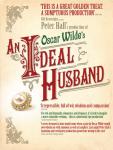
An Ideal Husband is an 1895 comedic stage play by Oscar Wilde which revolves around blackmail and political corruption, and touches on the themes of public and private honour. The action is set in London, in "the present", and takes place over the course of twenty-four hours. "Sooner or later," Wilde notes, "we shall all have to pay for what we do." But he adds that, "No one should be entirely judged by their past." Together with The Importance of Being Earnest, it is often considered Wilde's dramatic masterpiece. After Earnest it is his most popularly produced play.
Related Books
Author other works
-

The Canterville Ghost
Oscar Wilde
An Ideal Husband is an 1895 comedic stage play by Oscar Wilde which revolves around blackmail and political corruption, and touches on the themes of public and private honour. The action is set in London, in "the present", and takes place over the course of twenty-four hours. "Sooner or later," Wilde notes, "we shall all have to pay for what we do." But he adds that, "No one should be entirely judged by their past." Together with The Importance of Being Earnest, it is often considered Wilde's dramatic masterpiece. After Earnest it is his most popularly produced play.The story begins when Mr Otis's family shifted to Canterville Chase, despite warnings from Canterville that the house is haunted. Mr. Otis says he will take furniture as well as ghost at valuation. The Otis family includes Mr. and Mrs. Otis, their daughter Virginia, twin boys (often referred to as "Stars and Stripes") and their eldest son Washington. At first, none of the members of the Otis family believes in ghosts, but shortly after they move in, none of them can deny the presence of Sir Simon (The Ghost). The family hears clanking chains, they witness re-appearing bloodstains "on the floor just by the fireplace", which is removed every time it appears in various forms (colors). But, humorously, none of these scare the Otises in the least. In fact, upon hearing the clanking noises in the hallway, Mr. Otis promptly gets out of bed and pragmatically offers the ghost Tammany Rising Sun Lubricator to oil his chains.Despite Sir Simon’s attempts to appear in the most gruesome guises, the family refuses to be frightened, and Sir Simon feels increasingly helpless and humiliated. When Mrs. Otis notices a mysterious red mark on the floor, she simply replies that she does “not at all care for blood stains in the sitting room.” When Mrs. Umney, the housekeeper, informs Mrs. Otis that the blood stain is indeed evidence of the ghost and cannot be removed, Washington Otis, the oldest son, suggests that the stain will be removed with Pinkerton’s Champion Stain Remover and Paragon Detergent: A quick fix, like the Tammany Rising Sun Lubricator, and a practical way of dealing with the problem.Wilde describes Mrs. Otis as “a very handsome middle-aged woman” who has been “a celebrated New York belle.” Her expression of "modern" American culture surfaces when she immediately resorts to using the commercial stain remover to obliterate the bloodstains and when she expresses an interest in joining the Psychical Society to help her understand the ghost. Mrs. Otis is given Wilde's highest praise when he says: "Indeed, in many respects, she was quite English..."The most colourful character in the story is undoubtedly the ghost himself, Sir Simon, who goes about his duties with theatrical panache and flair. He assumes a series of dramatic roles in his failed attempts to impress and terrify the Otises, making it easy to imagine him as a comical character in a stage play. The ghost has the ability to change forms, so he taps into his repertoire of tricks. He takes the role of ghostly apparitions such as a Headless Earl, a Strangled Babe, the Blood-Sucker of Bexley Moor, Suicide’s Skeleton, and the Corpse-Snatcher of Chertsey Barn, all having succeeded in horrifying previous castle residents over the centuries. But none of them works with these Americans. Sir Simon schemes, but even as his costumes become increasingly gruesome, his antics do nothing to scare his house guests, and the Otises succeed in failing him every time. He falls victim to trip wires, pea shooters, butter-slides, and falling buckets of water. In a particularly comical scene, he is frightened by the sight of a “ghost,” rigged up by the mischievous twins.During the course of the story, as narrated from Sir Simon's viewpoint, we come to understand the complexity of the ghost’s emotions. We see him brave, frightening, distressed, scared, and finally, depressed and weak. He exposes his vulnerability during an encounter with Virginia, Mr. Otis's fifteen-year-old daughter. Virginia is different from everyone else in the family, and Sir Simon recognizes this fact. He tells her that he has not slept in three hundred years and wants desperately to do so. The ghost reveals to Virginia the tragic tale of his wife, Lady Eleanor de Canterville.Unlike the rest of her family, Virginia does not dismiss the ghost. She takes him seriously; she listens to him and learns an important lesson, as well as the true meaning behind a riddle. Sir Simon de Canterville says that she must weep for him for he has no tears, she must pray for him for he has no faith and then she must accompany him to the angel of death and beg for Death's mercy upon Sir Simon. She does weep for him and pray for him, and she disappears with Sir Simon through the wainscoting and goes with him to the Garden of Death and bids the ghost farewell. Then she reappears at midnight, through a panel in the wall, carrying jewels and news that Sir Simon has passed on to the next world and no longer resides in the house. Virginia’s ability to accept Sir Simon leads to her enlightenment; Sir Simon, she tells her husband several years later, helped her understand “what Life is, what Death signifies, and why Love is stronger than both.”
-
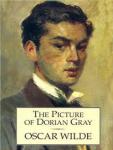
The Picture of Dorian Gray
Oscar Wilde
The Picture of Dorian Gray is the only published novel by Oscar Wilde, appearing as the lead story in Lippincott's Monthly Magazine on 20 June 1890, printed as the July 1890 issue of this magazine. The magazine's editors feared the story was indecent as submitted, so they censored roughly 500 words, without Wilde's knowledge, before publication. But even with that, the story was still greeted with outrage by British reviewers, some of whom suggested that Wilde should be prosecuted on moral grounds, leading Wilde to defend the novel aggressively in letters to the British press. Wilde later revised the story for book publication, making substantial alterations, deleting controversial passages, adding new chapters and including an aphoristic Preface which has since become famous in its own right. The amended version was published by Ward, Lock and Company in April 1891. Some scholars believe that Wilde would today have wanted us to read the version he originally submitted to Lippincott's.The novel tells of a young man named Dorian Gray, the subject of a painting by artist Basil Hallward. Basil is impressed by Dorian's beauty and becomes infatuated with him, believing his beauty is responsible for a new mode in his art. Dorian meets Lord Henry Wotton, a friend of Basil's, and becomes enthralled by Lord Henry's world view. Espousing a new hedonism, Lord Henry suggests the only things worth pursuing in life are beauty and fulfilment of the senses. Realizing that one day his beauty will fade, Dorian (whimsically) expresses a desire to sell his soul to ensure the portrait Basil has painted would age rather than he. Dorian's wish is fulfilled, and when he subsequently pursues a life of debauchery, the portrait serves as a reminder of the effect each act has upon his soul, with each sin displayed as a disfigurement of his form, or through a sign of aging.The Picture of Dorian Gray is considered a work of classic Gothic fiction with a strong Faustian theme.
-
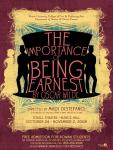
The Importance of Being Earnest
Oscar Wilde
The Importance of Being Earnest, A Trivial Comedy for Serious People is a play by Oscar Wilde. First performed on 14 February 1895 at St. James's Theatre in London, it is a farcical comedy in which the protagonists maintain fictitious personæ in order to escape burdensome social obligations. Working within the social conventions of late Victorian London, the play's major themes are the triviality with which it treats institutions as serious as marriage, and the resulting satire of Victorian ways. Contemporary reviews all praised the play's humour, though some were cautious about its explicit lack of social messages, while others foresaw the modern consensus that it was the culmination of Wilde's artistic career so far. Its high farce and witty dialogue have helped make The Importance of Being Earnest Wilde's most enduringly popular play.The successful opening night marked the climax of Wilde's career but also heralded his downfall. The Marquess of Queensberry, father of Lord Alfred Douglas, an intimate friend of Wilde, planned to present Wilde a bouquet of rotten vegetables and disrupt the show. Wilde was tipped off and Queensberry was refused admission. Soon afterwards, however, their feud came to a climax in court, where Wilde's homosexual double life was revealed to the Victorian public and he was eventually sentenced to imprisonment. Wilde's notoriety caused the play, despite its success, to be closed after just 86 performances. After his release, he published the play from exile in Paris, but he wrote no further comic or dramatic work.The Importance of Being Earnest has been revived many times since its premiere. It is a classical example of 'the well made play'. It has been adapted for the cinema on three occasions. In The Importance of Being Earnest (1952), Dame Edith Evans reprised her celebrated interpretation of Lady Bracknell; The Importance of Being Earnest (1992) by Kurt Baker used an all-black cast; and Oliver Parker's The Importance of Being Earnest (2002) incorporated some of Wilde's original material cut during the preparation of the original stage production.
